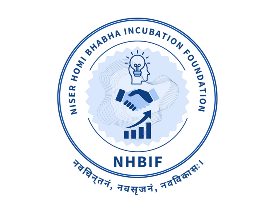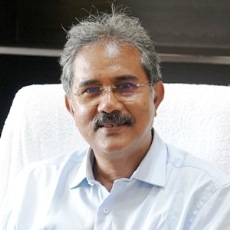
NISER Homi Bhabha
INCUBATION FOUNDATION
A Section 8 Company

A Section 8 Company
NHBIF uniquely provides many experts in diverse areas of science and technology, a state-of-the-art facility like CIS, and a collaborative environment to build an ecosystem that interacts with scientists and entrepreneurs. The triad of this uniqueness is key for NHBIF to succeed.
To provide spatio-temporal support to incubate innovative ideas to empower society for the future with a plethora of versatile experts and an extended span of state-of-the-art facilities like Center for Interdisciplinary Sciences.
NHBIF will help NISER members and potential outsider entrepreneurs to develop entrepreneurial skills and launch businesses. They provide resources like mentorship, networking, and funding to support students as they start their own businesses.
NISER was established in 2006 and started its academic program in 2007. In this short time, NISER faculty members have excelled in academics and shown promise in translatable research in various areas of health and material science, optics, information technologies, etc. Today, NISER attracts the attention of entrepreneurs and the industry because of its cutting-edge scientific expertise.
NISER hosts some of the top scientists in India and possesses knowledge assets that have the potential to positively impact society.
This effort will also help generate resources needed to support further high-quality research. Almost all the innovation programs currently being carried out by peer scientific institutions in India are through establishing a separate entity, a Section 8 Company. After careful analysis, NISER concludes that a Section 8 Company is the most reliable and tested structure capable of successfully launching and sustaining its innovation programme.
An incubation center helps to translate research from the laboratory to the society. We want the fruits of NISER to be useful for the community. Thus, NHBIF envisions fostering a spirit of innovation and entrepreneurship among its members from within and outside NISER to generate newer intellectual properties and apply new discoveries for the good of society. With the emergence and recognition of IP rights, scientific inventions are valued as assets by organizations, countries, and governments to meet societal needs and drive the economy.
Granting incentives to innovators can impen scientific, technological, and societal development. This allows for recognition and appropriate compensation to scientists and inventors and encourages them to conduct deeper research and produce better innovations, thus generating more assets and resources for the organization while furthering the cause of science and its translation.
Recognizing this value of scientific research and inventions, world-class academic institutions have incentivized their scientists and academic faculty for their innovations. Top institutions now have active programs generating impactful innovations globally and have financially generated annual revenues of several hundreds of Crore Rupees.
A few DAE institutions like BARC, RRCAT, IGCAR, and IPR have initiated incubation centers. Indian institutions have been able to set up their innovation programs due to the Scientific Entrepreneurship Scheme (approved in 2009) of the Government of India, which encourages the Development and Commercialization of Inventions and Innovations. Today, these innovation programs generate significant additional resources while promoting the culture of innovation to help translate these research results into meeting the needs of industry and society. Keeping in mind these positive experiences of other institutions, both in India and abroad, and the growing resource needs of NISER, NISER got its section 8 company named NISER HOMI BHABHA INCUBATION FOUNDATION (NHBIF) as a framework that will enable and encourage such activities.








